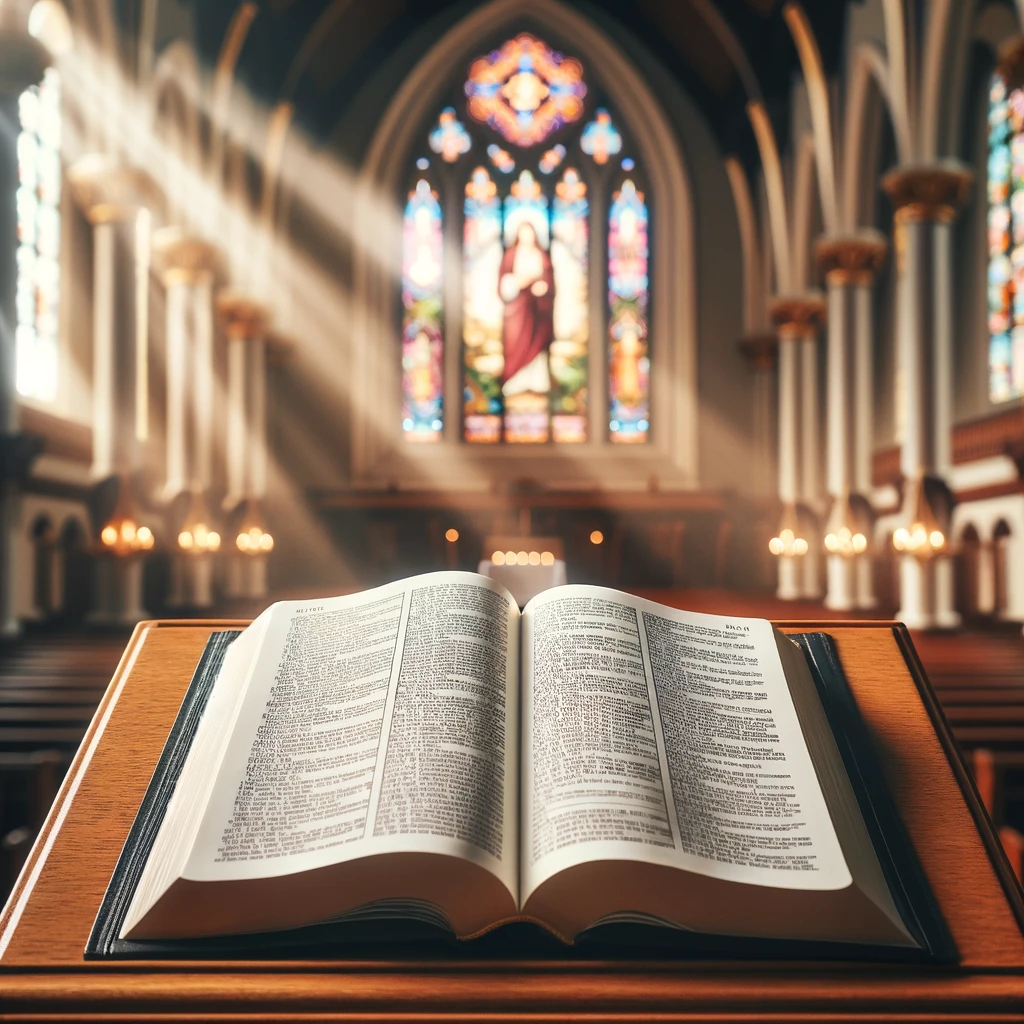
Easter of the Resurrection: John 20:1-9
Easter of the Resurrection of the Lord
1“On the first day of the week, Mary of Maagdala went to the tomb in the morning, when it was still dark, and saw that the stone had been removed from the tomb. 2She then ran and went to Simon Peter and the other disciple, the one Jesus loved, and said to them, “They have taken the Lord away from the tomb, and we do not know where they have placed him!” 3Peter then went out with the other disciple and they went to the tomb. 4They both ran together, but the other disciple ran faster than Peter and reached the tomb first. 5He bent down, saw the cloths laid there, but did not enter. 6In the meantime Simon Peter, who was following him, also came and entered the tomb and observed the cloths laid there, 7and the shroud-which had been on his head-not laid there with the cloths, but wrapped in a separate place. 8Then the other disciple, who had come to the tomb first, also entered, and he saw and believed. 9For they had not yet understood the Scripture, namely, that he was to rise from the dead.”
Jh 20:1-9
Dear Sisters and Brothers of the Misericordie, I am Carlo Miglietta, doctor, biblical scholar, layman, husband, father and grandfather (www.buonabibbiaatutti.it). Also today I share with you a short meditation thought on the Gospel, with special reference to the theme of mercy.
Paul affirms, “If Christ has not been raised, then it is … in vain is your faith” (1 Cor. 15): witnessing to the Risen Jesus is the purpose of the preaching of the whole early Church (Acts 1:22; 4:33; 10:40-41…). Cardinal Martini wrote: “There has never been a primitive Christianity that affirmed as its first message, ‘Let us love one another,’ ‘Let us be brothers,’ ‘God is Father of all,’ etc.” It is from the message, “Jesus is truly risen!” that all others derive.”
For those who already believe in God by a philosophical path, the resurrection of Jesus will represent the confirmation that he is truly the Son of God (school of Alexandria in Egypt, from the late 2nd century); for others, the experience of a man who, by rising again, overcomes death, and thus proves himself stronger than nature, therefore supernatural, and therefore God, will be the way to come to believe in the existence of God, as well as in the divinity of Jesus Christ (“historical path” of the school of Antioch of Syria, from the 3rd century).
All people of all times are called to confront the testimony of the Apostles. Christians are those who find them credible and truthful because simple, down-to-earth men, serene and balanced people, who are not ashamed to say that they themselves first doubted, gained nothing from their attestation, many having seen and in different circumstances, transformed by their encounter with the Risen One from fearful ambushers to courageous heralds, not bothering to make up the numerous discordances in the Gospels (as would those who want to invent such a story), people who paid with their lives for their affirmation: moreover, by the claim of the opponents themselves, the tomb was empty (Mt 28:11-15).
The Resurrection of Jesus is the fundamental event of history: in it evil, pain, and death have been annihilated (Rev. 21:1-6; 1 Cor. 15; Col. 1:18): our fears, our anxieties, our sufferings are vanquished forever. But above all, we have become “partakers of the divine nature” (2 Pet 1:4), receiving “adoption as sons” (Gal 4:5), also made sons of God in the Son of God! An endless Feast explodes in the depths of our hearts (Jn 16:22,24). And we can sing, intoxicated with joy, the Orthodox liturgical hymn of Easter Night:
“O mystical dance!
O feast of the Spirit!
O divine Easter that descends from heaven to earth and from earth ascends back to heaven!
O new and universal feast, cosmic assembly!
For all joy, honor, food, delight:
Through you the darkness of death is dispelled,
life is extended to all, the gates of heaven have been opened wide.
God has shown himself man
And man has been made God.
Enter all into the joy of our Lord;
first and last, receive the reward;
rich and poor, dance together;
temperate and carefree, honor this day:
whether you have fasted or not,
rejoice this day!
Let no one weep for his misery: the Kingdom is open to all!”
Happy Mercy to all!
Anyone who would like to read a more complete exegesis of the text, or some insights, please ask me at migliettacarlo@gmail.com.
